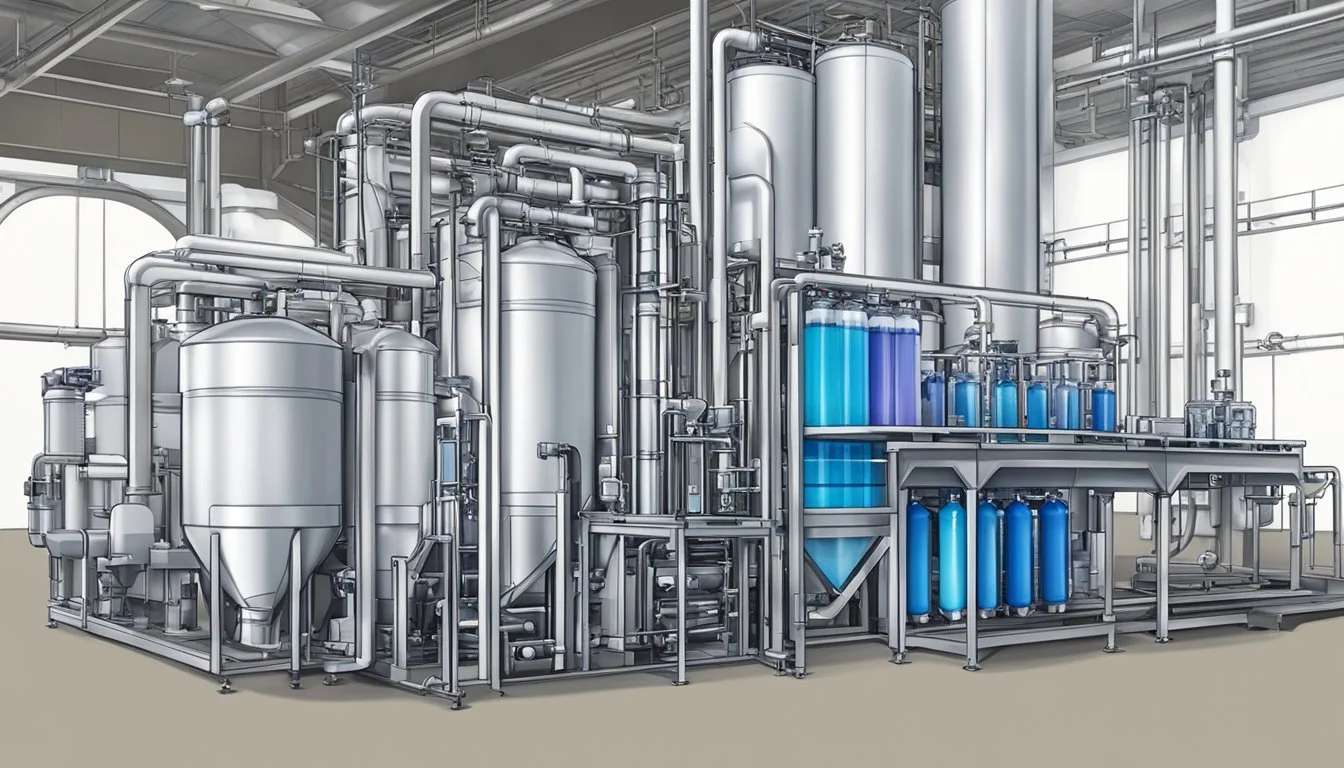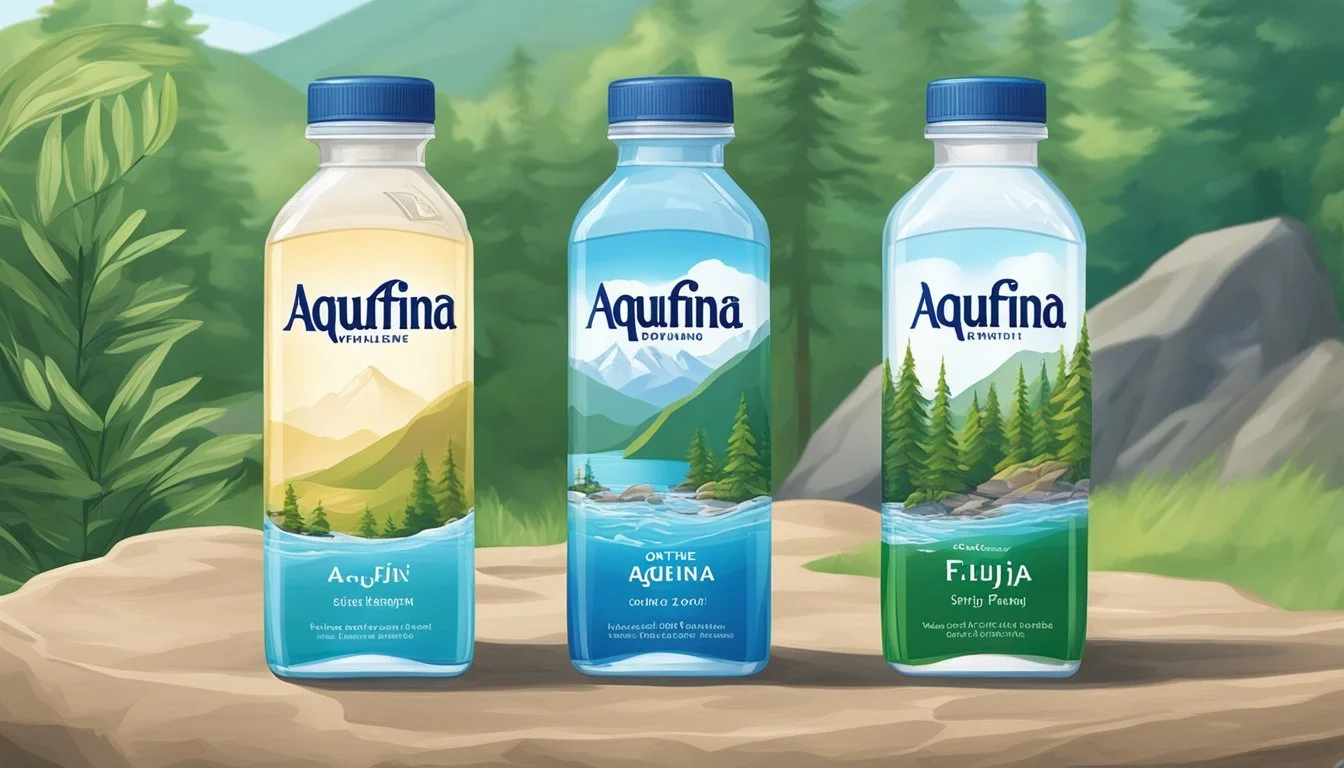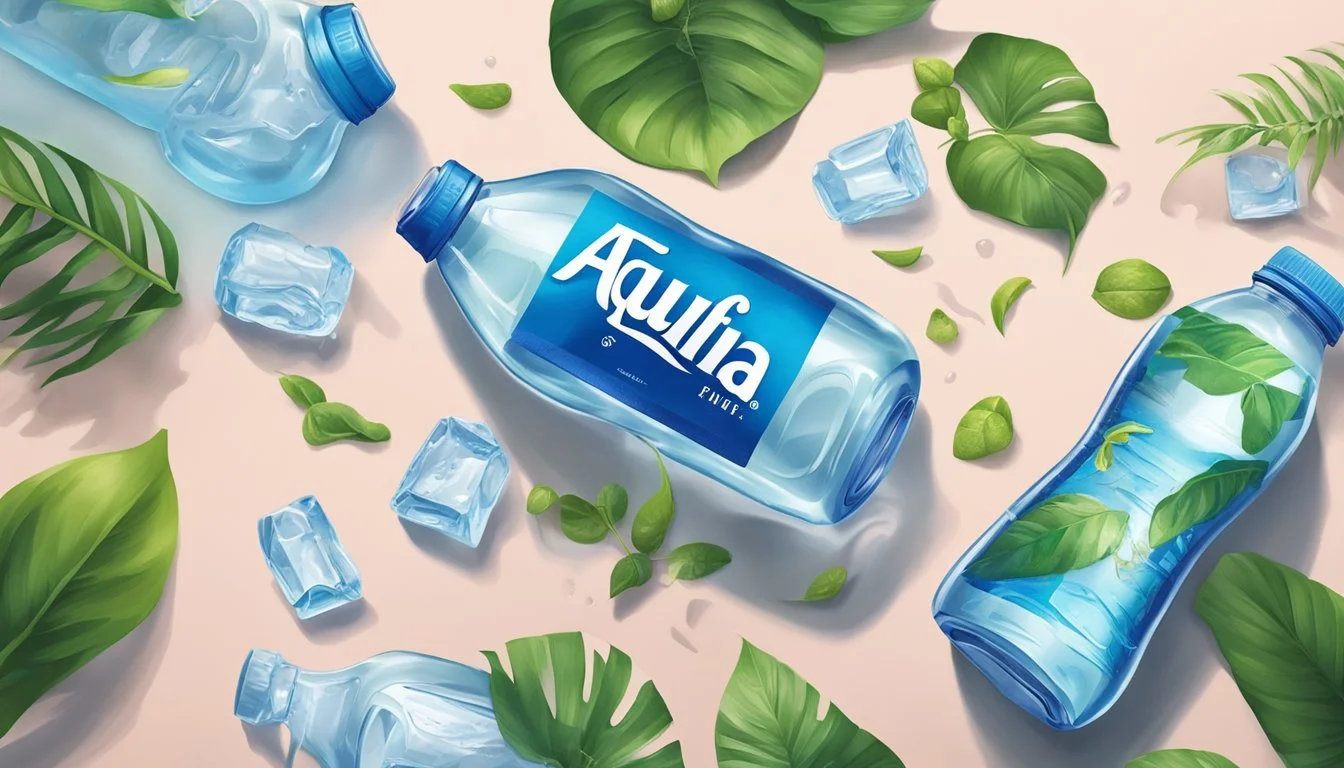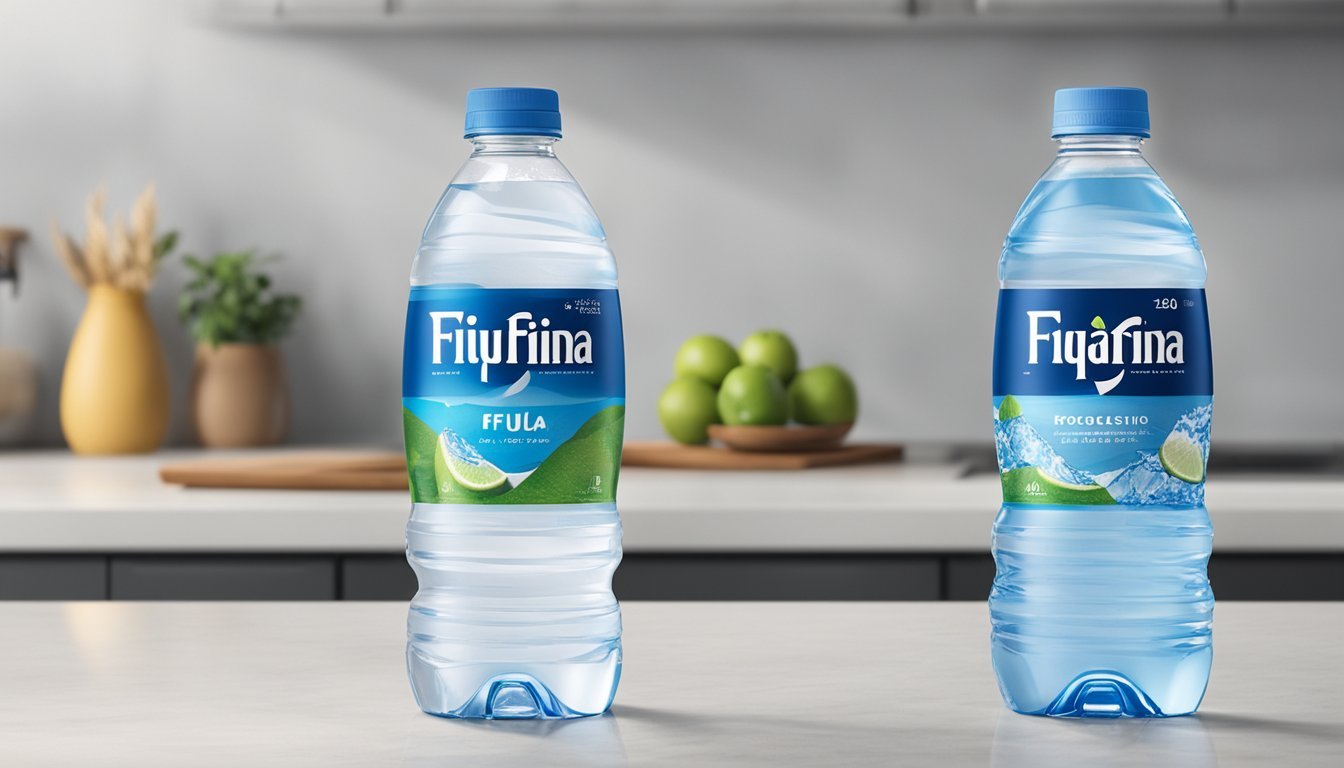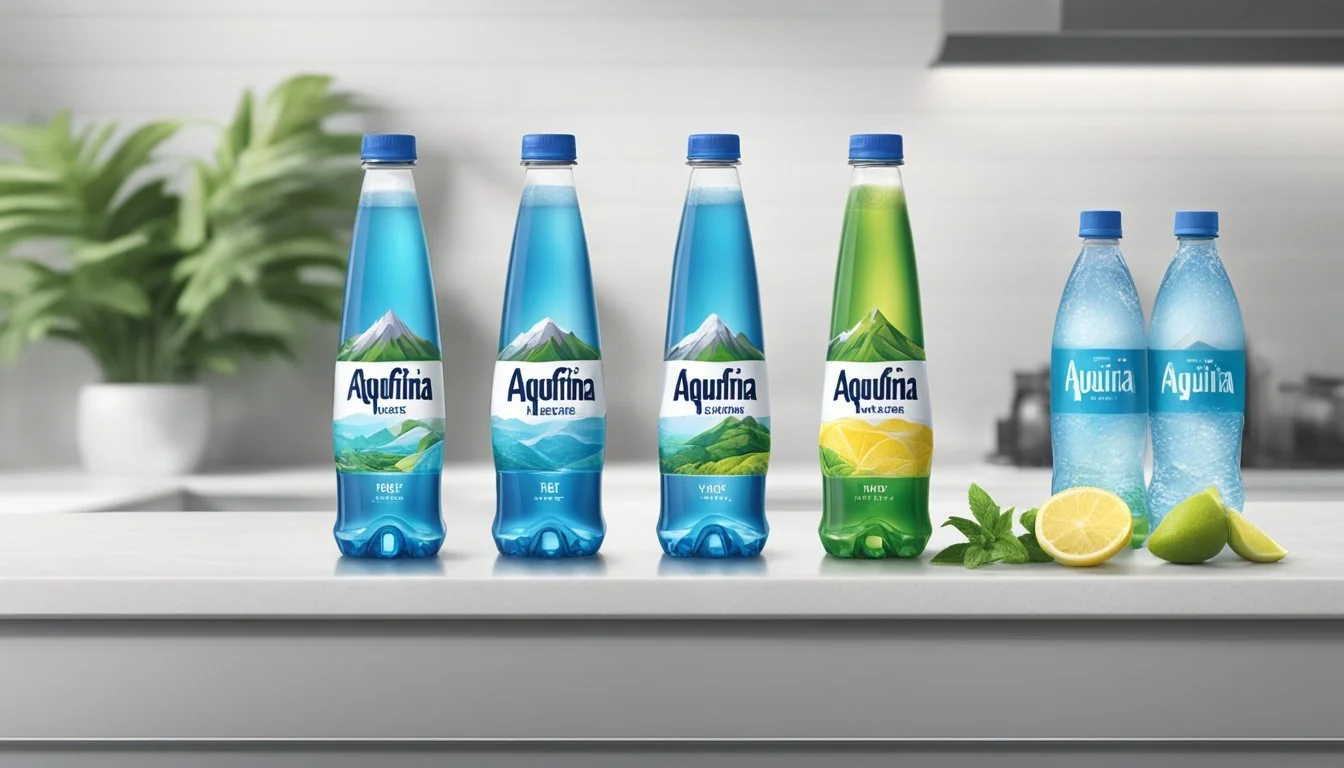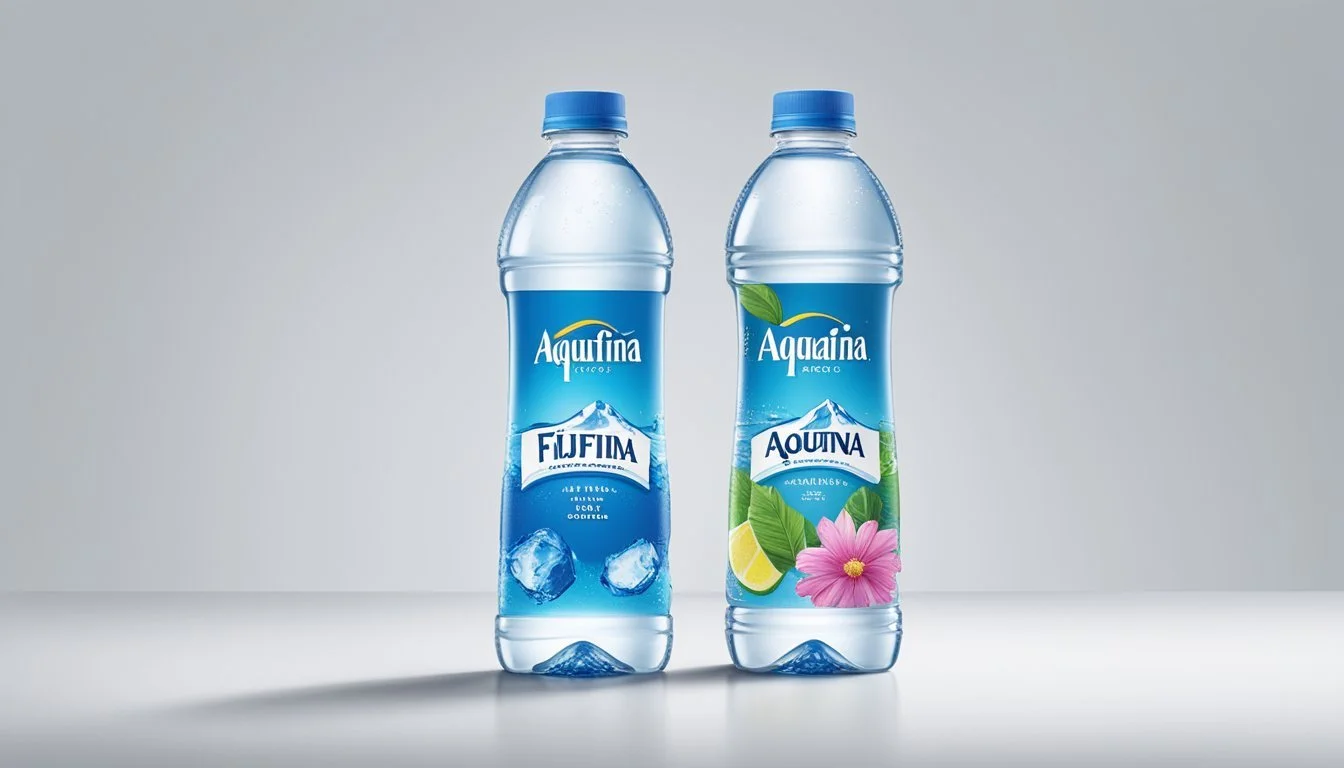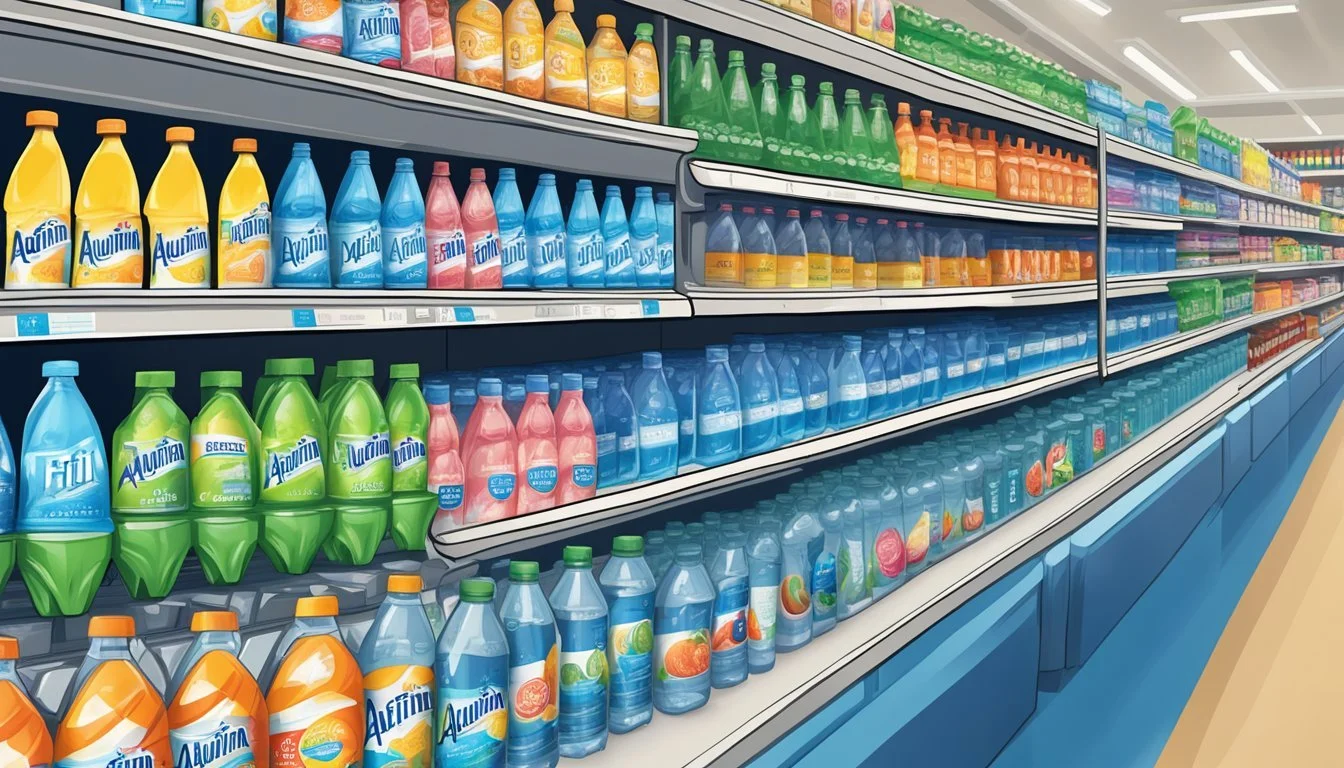Aquafina vs. Fiji
Comparing Quality and Taste in Bottled Water Brands
Choosing the right bottled water can be surprisingly complex. With a myriad of brands on the market, consumers are often left pondering which is superior. Aquafina and Fiji represent two leading bottled water brands with distinct characteristics. Aquafina, a product of PepsiCo, is notable for its purification process which includes reverse osmosis. Fiji, on the other hand, touts its source as the natural artesian aquifer in the remote Fiji Islands, promoting a connection to a pure and untouched environment.
The debate between Aquafina and Fiji water not only encompasses taste and purity but also factors in the environmental impact and the brands' respective processes. Consumers make choices based on these factors, which often reflect individual values and lifestyle preferences. While Aquafina emphasizes the scientific approach to its filtration and purification, Fiji will often highlight the natural minerals and electrolytes retained through its bottling process.
The choice between these two brands can impact one's daily hydration habits. It is not just about quenching thirst, but also about aligning with a product's ethos and health benefits. As such, understanding the nuances of each brand is key to making an informed decision in the bottled water aisle. Both brands have their loyal followings and have carved out significant spaces in the bottled water industry, but they cater to distinctly different consumer bases.
History and Brand Overview
In the realm of bottled water, Aquafina and Fiji Water represent two distinct brand heritages with their unique origins and market positions. This section explores the history behind each brand, providing insight into their development over time.
Aquafina Origins
Aquafina, a brand of purified bottled water, was introduced by PepsiCo in 1994. It quickly became one of America's best-selling bottled water brands. PepsiCo purifies Aquafina water through a rigorous seven-step purification process, which they have branded as HydRO-7™. This process includes reverse osmosis and other filtering methods, aiming to deliver pure water with a clean taste.
Fiji Water Roots
Fiji Water, on the other hand, commenced operations in 1996 when it was founded by Canadian businessman David Gilmour under the name Natural Waters of Viti Ltd. Sourced from an artesian aquifer in the remote Fiji Islands, it emphasizes its exotic origin and natural electrolytes. In 2004, Stewart and Lynda Resnick's Roll Global, now known as The Wonderful Company, acquired Fiji Water. Fiji Water is renowned for its soft mouthfeel and unique mineral profile, marketing itself as untouched until it is sealed in the iconic square bottle.
Source and Filtration Processes
When comparing bottled water brands, consumers often consider the source of the water and the purification methods employed. Aquafina and Fiji water are two leading bottled water brands that use distinct sources and filtration processes to ensure the purity and quality of their water.
Aquafina Purification
Aquafina, owned by PepsiCo, sources its water from municipal supplies, meaning it comes from the same starting point as tap water. They employ a rigorous purification process that includes reverse osmosis, ultraviolet light sterilization, and ozonation. This multi-barrier system is designed to remove substances like chlorine, chloramine, and other contaminants to meet and exceed regulatory standards. Aquafina's purification aims to provide consistently pure and clean purified water without specific mineral character from the source.
Fiji Natural Filtration
In contrast, Fiji water originates as rainfall that is naturally filtered through volcanic rock within the Fiji Islands. This natural filtration process adds minerals and electrolytes that contribute to Fiji water's smooth taste and soft mouthfeel. It is collected from an underground spring that is protected from external elements. Fiji boasts water that travels from cloud to a secluded aquifer where it is bottled at the source, ensuring minimal human contact and preserving its natural state. The process relies on the geochemical properties of the volcanic rock, providing a natural filtration system that enhances the water's mineral profile.
Mineral Content and Health Benefits
When considering bottled water options like Fiji and Aquafina, one should examine the mineral content and potential health benefits associated with each. These factors can influence both taste and hydration efficiency.
Minerals in Fiji Water
Fiji Water originates from a natural aquifer and is known for containing minerals such as silica, calcium, and magnesium. The unique mineral profile is a result of the water filtering through volcanic rock before being bottled at the source. The presence of silica is particularly noted in Fiji Water; it is associated with supporting strong bones and connective tissue.
Silica: 93mg/L
Calcium: 18mg/L
Magnesium: 15mg/L
Aquafina's Electrolyte Addition
Aquafina, on the other hand, is purified water that does not naturally contain significant levels of minerals or electrolytes. However, to enhance the water for taste and to provide potential hydration benefits, electrolytes like magnesium sulfate and potassium chloride are added in small amounts. Despite these additions, the mineral content in Aquafina is relatively low compared to naturally occurring mineral waters.
Magnesium Sulfate: Trace amounts for taste
Potassium Chloride: Trace amounts for taste
Both brands aim to support adequate hydration, but the naturally occurring minerals in Fiji Water might offer a slight edge in health benefits over Aquafina’s added electrolytes. It's important for consumers to consider these factors when choosing their bottled water.
Taste Profile Comparison
When comparing bottled waters like Fiji and Aquafina, a consumer's choice often comes down to the distinct taste profiles each brand offers. These profiles are influenced by their sources and filtration processes.
Fiji Water Taste Signature
Fiji Water is sourced from an artesian aquifer in the remote Yaqara Valley of Viti Levu, Fiji. The water is naturally filtered through volcanic rock where it acquires a unique mineral profile. Consumers often describe Fiji Water as having a smooth and soft mouthfeel, complemented by a subtle natural sweetness. This taste signature is frequently preferred in blind taste tests, particularly among those who value the presence of natural minerals contributing to flavor.
Aquafina's Taste Experience
Aquafina, on the other hand, prides itself on a state-of-the-art purification process known as Hydro-7. This rigorous filtration ensures that Aquafina is devoid of dissolved solids and impurities that could affect water taste. As a result, many consumers identify Aquafina's taste as pure, crisp, and refreshing. This characteristic profile is especially appreciated for not influencing the taste of other beverages, such as coffee, where the water's flavor neutrality is crucial.
Environmental Impact and Sustainability
When assessing bottled water brands like Fiji Water and Aquafina, their environmental impact and efforts towards sustainability feature prominently in consumer discussions. This section evaluates how Fiji Water and Aquafina address sustainability in their operations, particularly in areas such as transportation and production practices.
Sustainable Practices of Fiji Water
Fiji Water asserts a commitment to the environment through various initiatives. Notably, it made a significant shift by transitioning its 500 mL and 330 mL bottles to 100% recycled plastic in the United States, thereby reducing the amount of virgin plastic in production. The brand's source, a natural artesian aquifer in Fiji, is naturally replenished by tropical rainfall, creating a renewable source of water. However, the environmental footprint must also account for the energy and resources used in shipping this water to global markets.
Aquafina and Environmental Responsibility
Aquafina, on the other hand, sources its water domestically within the US from public water sources, which could mean a lower transportation footprint compared to international shipping. As part of PepsiCo, Aquafina falls under corporate sustainability plans which include goals like reducing virgin plastic use across their beverage portfolio. Although not a sparkling drink, Aquafina's association with PepsiCo can leverage the company's distribution network to mitigate environmental impact. PepsiCo's acquisition of Ethos Water, however, reflects a direct investment in a brand noted for its commitment to providing children with access to clean water, indicating a broader environmental and social responsibility ethos.
Packaging and Convenience
When considering Aquafina and Fiji water, consumers often regard the packaging and convenience of these brands. Each offers unique aspects regarding bottle design and availability, factors that have a significant role in consumer choice.
Bottle Design
Aquafina bottles are designed with a simplistic, sleek shape that is easy to hold, featuring a label that emphasizes purity. The bottles are made with a lightweight PET plastic, which is intended for ease of transport and recycling. The twist-off cap ensures the water is contained securely, reducing the risk of leaks or spills.
Fiji Water is notable for its square-shaped bottle crafted from a heavier grade of PET plastic, a design meant to mirror the premium quality of the water it contains. The bottle showcases the brand's tropical imagery and a distinctive pink flower, symbolizing Fiji's island origins. The wider mouth of the Fiji bottle is designed for a smoother flow of water upon drinking.
Availability and Access
Both brands are widely available, but they each have different levels of presence in the market.
Aquafina: Owned by PepsiCo, it boasts widespread distribution and can be found in most grocery stores, convenience stores, vending machines, and numerous other retail locations. Due to its parent company's extensive distribution network, Aquafina is typically easy to find in both urban and rural areas.
Distribution Channel Aquafina Presence Grocery Stores High Convenience Stores High Vending Machines High
Fiji Water: As a premium brand, it has a more selective distribution but is still readily available in many supermarkets, specialty stores, and higher-end hospitality venues. Its availability, while broad, might be slightly more limited in certain areas compared to Aquafina.
Distribution Channel Fiji Water Presence Grocery Stores Medium to High Specialty Stores Medium to High Hospitality Venues Medium to High
In terms of pure convenience, Aquafina may have a slight edge due to its omnipresence and the broader reach of PepsiCo's distribution, whereas Fiji Water's availability, though extensive, is occasionally more targeted towards consumers seeking a premium product.
Consumer Trust and Brand Reputation
In the realm of bottled water, consumer trust and brand reputation play pivotal roles in shaping the preferences and purchase habits of customers. They are directly influenced by factors such as taste, quality, source, and marketing efforts, including social media presence and endorsements.
Public Perception of Fiji
Fiji Water has managed to create a strong consumer trust through its exotic source and marketing strategies. It claims to originate from a sustainable ancient aquifer in Fiji, lending it an image of purity and untouched quality. This brand has a broad presence on platforms like YouTube, where its promotional content reinforces the allure of its natural origins.
Net favorability: Fiji Water reportedly has a high net favorability rating among U.S. adults, bolstering its reputation as a preferred brand.
Aquafina's Market Presence
On the other hand, Aquafina, which is a product of PepsiCo, boasts a significant market presence owing to the company's global distribution network. It undergoes a rigorous purification process termed Hydro-7, which is a key selling point of the brand. Its wide availability and recognition make it one of the most popular brands on the market.
Branding efforts: Aquafina leverages PepsiCo's established market presence, which helps it maintain its position in the highly competitive bottled water industry.
Pricing and Value for Money
The intersection of price and value for money paints a distinctive picture in the bottled water market where the positioning of Aquafina and Fiji Water is concerned.
Fiji Water Cost Analysis
Fiji Water is positioned as a premium brand. A single 500ml bottle typically costs significantly more than its basic counterparts due to its exotic sourcing and branding. Consumers often associate Fiji Water with a higher standard — sourcing from a remote Pacific island aquifer adds to its allure, justifying its higher price point. The brand’s square bottle, tropical imagery, and claims of superior water quality contribute to its expensive perception.
Aquafina's Pricing Strategy
In contrast, Aquafina, which is PepsiCo's product, implements a value-oriented pricing strategy. Marketed as purified drinking water, it is commonly found at a lower price point than Fiji Water. A bulk purchase of Aquafina often reveals an even more cost-effective option per liter or gallon, rendering it a budget-friendly choice. Aquafina's adoption of a transparent pricing strategy ensures that consumers are aware they are purchasing filtered municipal water, which is reflected in the price they pay.
Water Quality Testing and Safety Standards
When consumers choose bottled water, they often consider purity and safety as top priorities. Testing for contaminants, assessing pH levels, and ensuring overall cleanliness are critical components of the quality assurance process for bottled water brands. Both Aquafina and Fiji Water adhere to stringent standards, but they employ distinct approaches to quality assurance and safety.
Aquafina's Quality Assurance
Aquafina, a bottled water brand owned by PepsiCo, emphasizes its seven-step Hydro-7™ filtration process, which it claims removes substances other than pure water. These steps focus on eradicating chlorine and other potential chemical compounds to deliver water that meets or exceeds the cleanliness standards set by the EPA and FDA.
Purity: Aquafina states that its process results in water that is pure and clean, emphasizing a significant reduction of common contaminants.
PH Levels: The final product is characterized by a pH level that typically ranges from 5.5 to 7, aiming to achieve a neutral taste.
Fiji Water Examinations
Fiji Water is sourced from an artesian aquifer in the remote Fiji Islands and boasts its natural filtration process through volcanic rock, which adds minerals such as silica, contributing to its distinctive taste and high pH.
Purity: The brand often highlights the water's natural cleanliness, stemming from the secluded aquifer which minimizes potential contaminants from environmental factors.
PH Levels: Fiji Water is known for its high pH, generally above 7.5, making it one of the more alkaline bottled waters on the market, which some consumers seek for its alleged health benefits.
Each company’s dedication to providing safe bottled water reflects in their rigorous quality control measures and consistent testing protocols.
Consumer Preferences and Trends
Within the bottled water market, consumer choices are often influenced by brand favorability and an increasing demand for purity and taste. How customers perceive brands like Aquafina and Fiji is shaped not only by the physical quality of the water but also by brand reputation and marketing efforts.
Market Trends in Bottled Water
In recent years, American consumers have demonstrated a clear preference for brands that offer a combination of purity and a satisfactory taste profile. Fiji Water has taken a lead with a net favorability rating of 57, outperforming competitors such as Aquafina, which has a rating of 44. The market also shows a rising interest in niche brands that offer unique selling propositions. Brands like Icelandic Glacial, boasting a naturally alkaline pH and a low mineral content, or Eternal Water, sourced from protected underground springs, tap into the consumers’ desire for water that not only hydrates but also provides a superior drinking experience. On the other hand, products like the Brita filter reflect a segment of consumers who prefer creating purified water at home rather than purchasing bottled options.
Top Rated Brands According to Consumer Favorability:
Best Rated: Fiji Water
Highly Rated: Aquafina
Noteworthy Mentions: Icelandic Glacial, Eternal Water
Customer Loyalty and Preferences
Brand loyalty in the bottled water sector is heavily dependent on consumer perception of water purity and taste. Aquafina, owned by PepsiCo, and Fiji Water from The Wonderful Co., have cultivated their brand images to appeal to these preferences. Aquafina advertises its water as being 'pure water, perfected' with a seven-step purification system, while Fiji Water claims its advantage comes from being sourced from an artesian aquifer in Fiji, giving it a unique mineral profile. Smaller brands such as Penta emphasize ultra-purity through their own specialized filtration processes, carving out a dedicated consumer base focused on the healthfulness and functional benefits of hydration.
Factors Influencing Customer Loyalty:
Purity: Greater emphasis on advanced filtration processes and source purity.
Taste: Preference for a clean, fresh taste, often associated with natural sources.
Brand Image: Effective branding that aligns with consumer health and environmental values.
Unique Selling Points: Specific attributes such as mineral content and pH levels.
Final Comparison and Verdict
When examining Aquafina and Fiji bottled waters, various factors need to be considered including source, taste, and purity.
Aquafina, sourced from municipal tap water, undergoes a rigorous purification process known as Hydro-7, which includes reverse osmosis among other methods. The result is a clean and pure taste, devoid of any minerals or contaminants.
Source: Municipal water
Purification: Hydro-7 filtration
Taste: Pure, no distinct minerals
Fiji Water, on the other hand, is sourced from an artesian aquifer in the remote Fiji Islands. The natural filtration through volcanic rock adds minerals, giving it a soft mouthfeel and a distinctive taste that many consumers find appealing.
Source: Artesian aquifer
Mineral Content: High, includes silica and electrolytes
Taste: Smooth with a unique mineral profile
Consumers choosing between the two may consider environmental impact with Fiji's long-distance transportation being a factor. Aquafina's purification method is highly efficient, ensuring consistent quality, but it lacks the natural minerals found in Fiji Water. The preference often boils down to individual taste – those who prefer a neutral-tasting water may lean towards Aquafina, while others valuing a unique mineral taste might opt for Fiji. Pricing also varies, with Fiji generally positioned as a premium product.
To summarize, both have their own merits. Aquafina offers consistency and purity, while Fiji provides a unique mineral taste and natural source. The choice between Aquafina and Fiji ultimately depends on personal preference and priorities.



